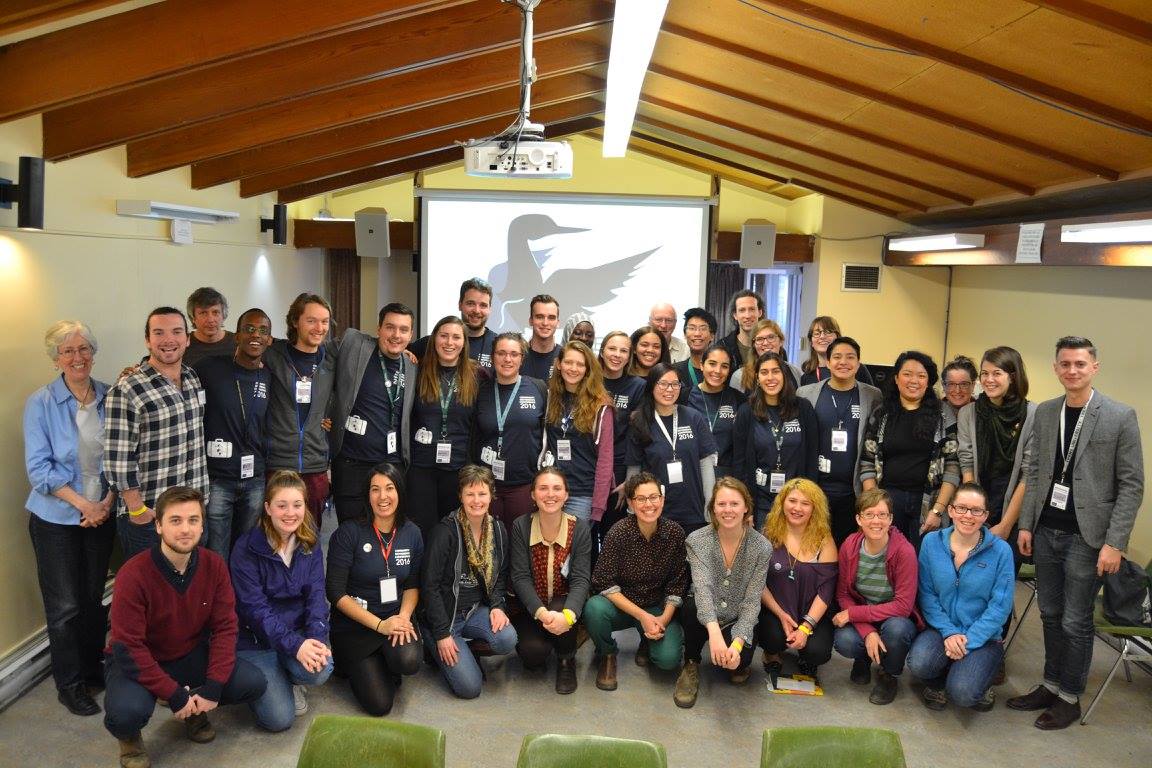

In hindsight, it is so obvious. There were the Vietnamese and Cambodian “boat people” of the 70s and the boats of Rohingyas from Myanmar (Burma), pushed around last year in geopolitical pinball last summer by Thailand, Indonesia and Malaysia.
And the millions of Palestinians since the creation of Israel. And all the Iraqis, and Afghanis, and Somalians and Eritreans displaced and the list goes on and on and on. Of course there was a refugee crisis before the current Syrian one.
So why had it taken activist Harsha Walia to point this out?
It was like she actually pulled something from the back of everybody’s mind right through the brain to the front, it was quite a shock.
Walia was speaking as the first keynote address at this year’s Trent Community Movements Conference, Migration: Exploring Roots and Routes. This is the Community Movements’ ninth annual conference, this year taking on an increasingly pressing topic where there is little grounds for optimism any time soon.
There have been plenty of think pieces in the media over the past year, The Atlantic and The Economist both running articles saying we should let all refugees in, if only for the economic benefits.
This conference sought to understand migration, the refugee crisis as a whole and the crisis since the Syrian civil war, with particular focus on Canada’s treatment of refugees and migrants.

The conference kicked off with a rousing keynote address by Walia. Walia, described by award-winning Canadian author Naomi Klein as “one of Canada’s most brilliant and effective political organizers,” is the founder of the Vancouver branch of No One is Illegal, a group that represents non-resident immigrants who are at risk of deportation.
As well as her activist work, she has addressed the United Nations and has written widely, appearing in journals, magazines and anthologies.
Walia spoke on three main themes, all of which have direct relationships to each other: that the refugee crisis not merely a Syrian one, but a global one; we must question the role that our governments plays in this; and that border imperialism is based in racism.
Wars and government action, in which western governments are implicated, have led to mass displacements.
With wars in Afghanistan and Iraq, the dislocation of Palestinians since 1948 and Rohingyas persecuted in Myanmar all as examples, it was nothing short of a refugee crisis prior to the Syrian civil war.

In these examples and more, there is a trail of western involvement through direct action and or explicit support for administrations yet, as Walia opines, Canada’s policy of unlimited detention for undocumented migrants does nothing to improve the situation, only worsens it.
Thus, we must question our governments’ role.
There seems very little explanation as to why this should be so, other than what Walia sees as the inherent racism of the global north. If you are supposedly unskilled and do not fit the image of that country, you are not welcome.
That moves us nicely into our second keynote, Refugee Coordinator of Amnesty Canada Gloria Nafziger, who talked about refugees in Canada.
As the End Immigration Detention workshop highlighted, Canada’s record on detaining migrants and refugees is not great.
Despite the admirable welcoming of Syrian refugees, Canada still detains many undocumented migrants, in the Lindsay superjail for instance.
The End Immigration Detention Centre website noted, “between 2004 and 2011, 82,000 people were locked up in immigration detention.”
Despite robbing them of their liberty, often the detainees have not committed any crime. As the website continues, immigration offences such as staying too long are not criminal offences, but administration ones akin to a parking ticket.
 So while Canada, by recently welcoming many Syrians, is not doing too badly, it should be doing a lot better according to Narfziger.
So while Canada, by recently welcoming many Syrians, is not doing too badly, it should be doing a lot better according to Narfziger.
Other events and workshops included The New Canadian Centre’s Michael Vanderherburg talking about the relocation of refugees in Canada. Through various sponsorship programs, government and private, The New Canadian Centre helps to resettle refugees in Canada, finding them housing and helping them to settle in.
On the same day, there was a Student Panel, where students discussed research papers and case studies of migration. The themes ranged from statelessness to medical migration.
With the policies of states like Myanmar and Bangladesh, statelessness for people like the Rohingya and Cham people is a rising problem.
Statelessness takes three forms: De jure, where a person is without any state nationality; De Facto, a person has a nationality but are illegal in their current location; and effectively stateless, where you cannot prove formal nationality and legal status despite having both.
The panel described the fate of children in the Malaysian state of Sabah, where the children of ‘illegal migrants’ are rendered stateless, leaving them with a precarious existence.
There are two main lessons to take from the conference.
Firstly, the refugee crisis is much greater than many realize and indeed would care to admit.
With Jordan and Lebanon already strained by its Palestinian refugee populations, the influx of Syrian refugees serves to show how poorly the world is dealing with a continually evolving crisis, which deflects attention from forgotten peoples like the Rohingyas.
Secondly, the co-chairs and students showed that millennials are not the layabouts that a recent Financial Times article would suggest, but there is a strong core of young people who are passionate and driven to make positive change.
They are not just passionate though, they are wildly competent at what they do, too.
Phil Giurlando, who spoke on the Syrian crisis in particular, said he “was impressed with the way it was organized. [The] students did an absolutely fantastic job in arranging everything from the speakers to the food.”
If these folks are the future of activism, political change and human rights, then they are in the strongest hands.


